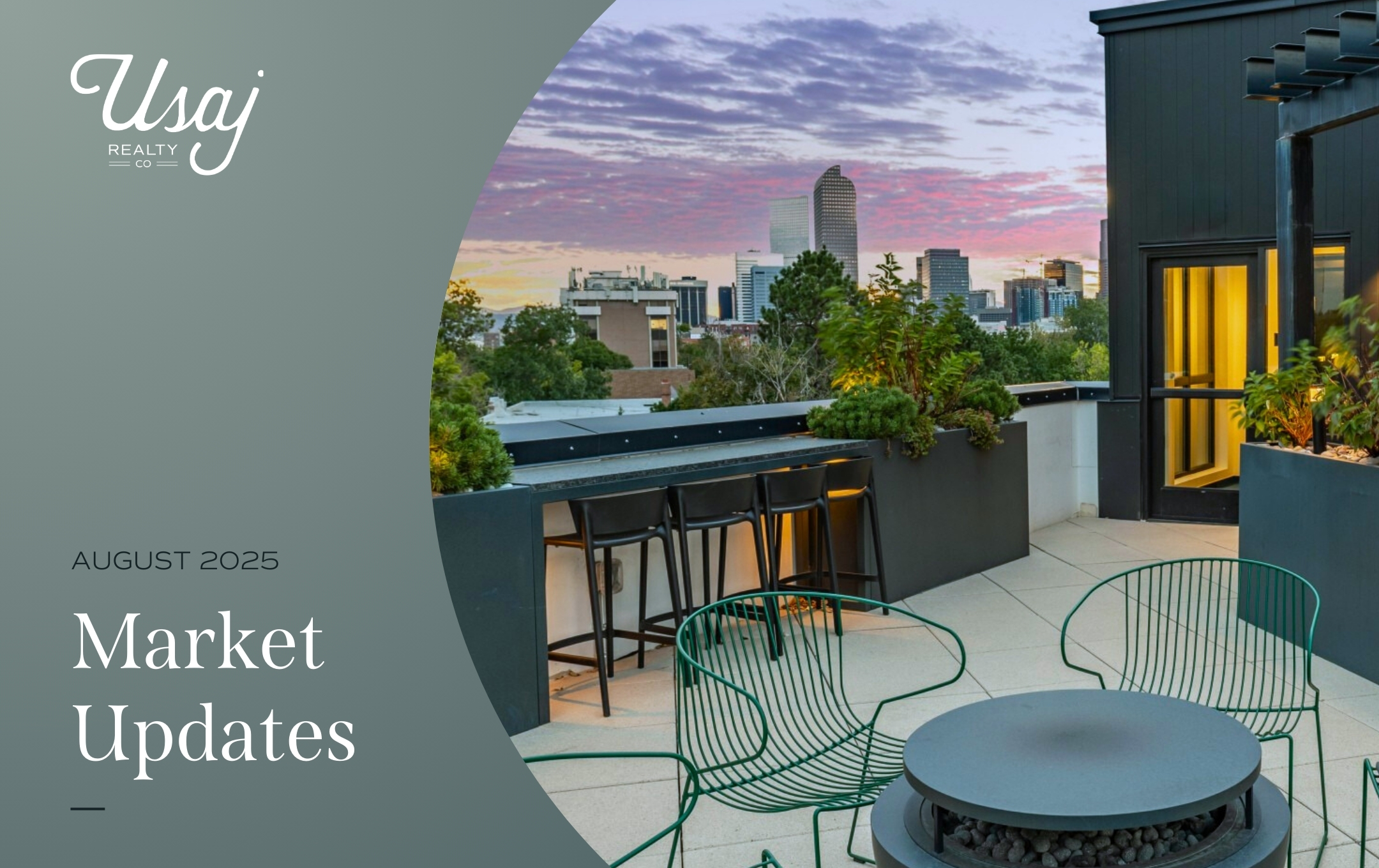The Cost of Waiting to Buy a Home
Written by Andrew Schmeerbauch for Usaj Realty
As the buying frenzy winds down and the colder months start to settle in, those of you who haven’t bought a house may start feeling the pressure to make a choice—and fast!
Do I buy or do I continue renting? This is a question many struggle with, and each answer varies according to your individual situation.
In a seller’s market, most are waiting for the housing prices to drop to slightly below outrageous so they can afford to buy a house without selling all their possessions that would ordinarily make it a home.
But are there costs to waiting? Are you actually wasting more money by waiting to buy?
The True Cost of Waiting
When weighing your options of buying or continuing to rent, you may want to get a lender’s analysis. They’ll map out your current situation and lay it out against your potential future if you were to buy. Knowing this can prevent you from not only shelling out your hard-earned savings, but it might ensure that you get the best value from your living situation.
There are several things your lender will look at when advising you on when to be patient and when to buy. The first is interest rates.
Interest Rates
While many look at the purchase price of a home when deciding whether or not to buy a property, few ask about the cost of interest rates. Whether you live in the house for three or 30 years, the amount of interest you owe on the property will be significant.
Just to give you an idea of how much interest costs, let’s say you purchase a house and take out a loan for $200,000. Your interest rate is 4%, and your loan is for 30 years. At the end of 30 years, you will have paid $143,739.01 in interest alone. That means, without even counting up the other costs associated with the home purchase, you will have spent $343,739.01 for your house at the end—just because of interest. The good news is that the interest on a home mortgage is tax deductible, which can be a significant savings in the long run.
Loan Type
The interest you pay is mostly dependent upon the type of mortgage you receive, as well as how much you are willing to put as a down payment on the home. Each loan has its own terms that factor into your costs.
For example, a FHA loan requires that you pay mortgage insurance. If you wrap the mortgage insurance into the life of the loan, the percentage that you pay toward insurance is directly impacted by your Loan to Value ratio (LTV), which can fluctuate depending on what the market is doing. This means if your house is appraised for $400,000 when you buy it, but the market continues to rise, later your home could be worth $450,000 and your insurance payment will match.
You may be thinking that you’ll just wait and save your money so you can use a conventional loan and eliminate mortgage insurance. The bad thing about that is that you cannot predict the market. Saving money now to eliminate PMI could be a wash if rates rise to the point of costing you the amount you would pay for PMI anyway.
This is why it is a good idea to talk to a real estate professional and have them help you weigh your options. You want to make your money work for you the best it can, especially on your loans.
Location
You may have heard terms like “buyer’s market” or “seller’s market” on the news. When news anchors are discussing housing trends, they tend to cover the broad– such as the nation as a whole, certain regions, or even certain states. The neighborhood in which you are looking to buy also has its own market trends that may or may not differ from the state as a whole. These trends often move quickly than state trends which makes the market more difficult to anticipate.
What this means, is if you are looking to buy a home in a certain area but are hoping the prices drop, it’s going to be a gamble. Sometimes the prices drop and rise the same way the stock market charts do– suddenly. If you find a house in the location that you want to live in– waiting could cost you the house. If those odds are worth waiting for, great! But if the house of your dreams is on the line, it’s in your favor to get your offer in fast.
Home Price
Although many say they’re waiting until the houses drop in price, they are often waiting in vain. Housing prices often go up much of the time rather than down, and the worst-case scenario is if the interest rates and the housing prices rise before you even have the opportunity to jump into the market. You’ve got to weigh this into your costs.
Will the price of jumping in now potentially save you money or cost you money?
Buying vs. Renting
When contemplating your purchase, you often hear the advice of buying a home rather than renting so that you can build equity and sell for a profit later. This largely depends on where you are living. In the Denver market, you can buy a condo for around $299,000, and in addition to owning your own place, there’s also a tax credit you get for owning a house (more if you are married filing jointly!).
Beyond the economic sense purchasing a home makes, there are also social benefits that come with home ownership. According to report by the National Association of Realtors, “owning a home embodies the spirit of individual autonomy and is the aspiration of most American households. Home ownership allows households to accumulate wealth and social status, and is the basis for a number of positive social, economic, family and civic outcomes. Many studies found that home ownership still provides a variety of social benefits. Home ownership boosts the educational performance of children, induces higher participation in civic and volunteering activity, improves health care outcomes, lowers crime rates and lessens welfare dependency. With a home purchase comes the pride of ownership and the sense of belonging in a community where one has a financial stake in the neighborhood.
Let’s compare that to renting in Denver.
Currently, you can’t even touch a 2-bedroom home for less than $2,000/month. Add on your utilities and you may not end up on top, even if you are only planning to live in the area (buy or rent) for a few years. Let’s take a look at what that might look like.

Scenario 1
Let’s just say that you want to buy a house in 2019 and sell in 2021.
You purchase a home for $299,000 (median price of a Denver condo) with a 20% down payment and around $10,000 in closing costs. So, already you’ve put about $70,000 into the house and will need to pay off the remaining $239,200 over the next 30 years, not counting interest, which is set at 5.25%. We’re being generous with these numbers.
You live in the home happily paying your mortgage until 2021 arrives, and it’s time to sell.
Over the course of those two years, your monthly payment was about $1,321, for a total of $31,704. Of that, $24,652 goes toward interest alone, meaning you still owe $231,046 on your house.
We’ll pretend the market has been climbing a little bit (or you’ve put a little sweat equity into the home) and you are able to sell it for $320,000, paying about $19,200 toward realtor fees, on the high end. That means you paid $120,904 into the house over the last two years, recouping roughly $89,000 of that from the sale of the house. This equals a total of $31,904 for two years of living in a nice house. Not too shabby!
Scenario 2
Now let’s say you plan to wait out the market for a bit and rent for two years instead.
Your monthly payment is $2,000 per month (a bit less than the average rent for downtown Denver), and you don’t pay any closing costs or brokerage fees. Over the course of those two years, you end up paying roughly $48,000. Maybe you add a few thousand just in repairs or pet deposits.
Let’s Compare
OK, time for the moment of truth. If you bought a home now, you would end up paying more upfront but would recoup it on the back end. If you rent for the next two years instead, you’ll end up paying more over time that you won’t be able to recoup at all.
The cost of waiting in this scenario is $16,096!
That’s the price of a new small car or a few luxurious vacations. That’s how much it costs you to rent vs. buying today.
Saving on the Home Purchase
If you and your lender decide the time is right to buy a home and the numbers are in your favor, there are ways to save money.
Pay a Bigger Down Payment
Notice this isn’t “save for a more significant down payment”—and there’s a reason for that. Saving means costing you time, and time could cost you thousands of dollars, as we have already demonstrated above.
If you have been saving up to this point, try to use that money to put down a nice enough down payment that you don’t have to worry about paying Private Mortgage Insurance. If you can’t, don’t force it. You don’t want to be out your emergency fund, especially when making a big purchase like your house.

Choose the Right Real Estate Agent
One of the easiest ways to save when buying a house is to choose the right agent. The right real estate agent will know a great deal when they see one and help you get in on it. They’ll go to bat for you as you work to negotiate the price down.
When the time comes to draw up the paperwork, they’ll also be there to answer all of your questions.
The Bottom Line
We’ve done the math, and waiting to buy a house isn’t always what it’s cracked up to be. While the costs are determined by your loan type, the area, and your credit history, the numbers in Denver certainly present a favorable case for buyers.
If you’re sitting on the fence and crossing your fingers hoping that the market will continue to drop, talk to one of the local experts at Usaj Realty. You may find your dream home isn’t as far out of reach as it seems!
(This blog was written by Andrew Schmeerbauch, an avid real estate investor and blogger).




